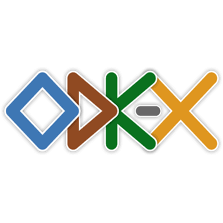Understanding My Project: Creating Tests for ODK-X Android Tools
 Chinedu Ihedioha
Chinedu Ihedioha
Hey there, fellow tech enthusiasts! Today, I want to take you on a journey into the world of ODK-X, a powerful open-source toolkit for data collection in resource-limited environments.
Now, for those new to the scene (like me a few weeks ago), ODK-X might sound a bit cryptic. But fear not! This blog post is meant to break it down and explain why it's such a valuable tool, especially the part I am working on Creating Android Tests for the ODK-X Tool Suite.
What is ODK-X?
Imagine this: you are a field researcher in a remote location, studying the spread of a certain disease. You need to collect data quickly and accurately, but reliable internet access might be scarce. Here is where ODK-X shines! It allows you to build custom apps for data collection on your Android device, working offline if needed, and then seamlessly sync it back to a server later. Pretty cool, right? Our users include organizations like PATH, World Mosquito Program, and the Red Cross.
The Importance of Testing
So, ODK-X helps gather critical data, but how do we ensure it all works smoothly? That is where I come in. As an intern, I am focusing on testing the ODK-X Android tools. Think of it like this: new features and updates are constantly being added, and testing makes sure these changes do not break anything.
Here is the technical jargon breakdown (do not worry, we will learn together):
Unit testing: Imagine a single brick in a wall. Unit testing focuses on ensuring each individual brick (a specific piece of code) functions correctly.
Integration testing: Now, picture the entire wall. Integration testing verifies how these individual bricks, the code components, work together seamlessly.
My job is to create tests using tools like Java, JUnit, Hamcrest & Truth, and Espresso to simulate user interactions and verify if the updated code functions as intended in both scenarios. Specifically, my tasks include:
Verification of Code Effectiveness: Ensuring recent code modifications are effective and do not introduce new issues.
Adherence to Acceptance Criteria: Making sure the new code meets predefined criteria.
Test Suite Creation: Developing a suite of manual and automated tests to verify the new features and detect any unexpected behavior.
Optimizing Code: Replacing deprecated functions with the latest libraries and following best practices.
Why This Project is Exciting
Here is what gets me pumped about this project:
Impact: Solid testing ensures ODK-X remains reliable for researchers worldwide, contributing to vital data collection efforts.
Learning Curve: Every day brings new challenges and opportunities to learn new coding practices and testing frameworks.
Contributing to Open Source: Being part of a community dedicated to creating free and accessible tools for the greater good is incredibly rewarding.
What Was Confusing?
At first, all the acronyms and specific frameworks used in ODK-X development were a bit overwhelming. Also, understanding the existing codebase and the new features added. But thanks to my awesome mentors and helpful online resources, I am steadily getting the hang of it. Over the past weeks, I have learned a lot about:
Android Testing Frameworks: How to use them effectively to create robust tests.
ODK-X Architecture: How the different components interact and the importance of each.
Best Practices in Java: Ensuring code compatibility and following the latest coding standards.
The Takeaway
So, if you are interested in contributing to open-source projects that make a real-world difference, consider exploring ODK-X. While some coding experience is a plus, the passionate community is always welcoming to new learners. I hope this gives you a clearer picture of what we do and how you can contribute.
This has just been a glimpse into my ODK-X testing journey. Stay tuned for future updates on the challenges I encounter and the cool things I learn along the way. See you soon 🤞
Subscribe to my newsletter
Read articles from Chinedu Ihedioha directly inside your inbox. Subscribe to the newsletter, and don't miss out.
Written by

Chinedu Ihedioha
Chinedu Ihedioha
Hello everyone, I am Chinedu Ihedioha from Nigeria. I recently obtained my bachelor's degree with a strong foundation in computer science & engineering and a keen interest in software development. I am also a Backend Developer, working with Java, Kotlin, and Spring frameworks including Springboot, Hibernate, Spring Data JPA, and Spring Security. I have hands-on experience with infrastructure and database tools like AWS Amplify Studio, MySQL, PostgreSQL, and Docker, enabling me to build robust and scalable applications. When I am not coding or doing anything that relates to tech, you can always find me on the football pitch. I am a big fan of football and I am a passionate supporter of Liverpool FC. I also have interests in other sports, such as Formula 1, Basketball, Tennis, and Boxing. Looking forward to exploring potential collaborations and discussing exciting opportunities with you all.